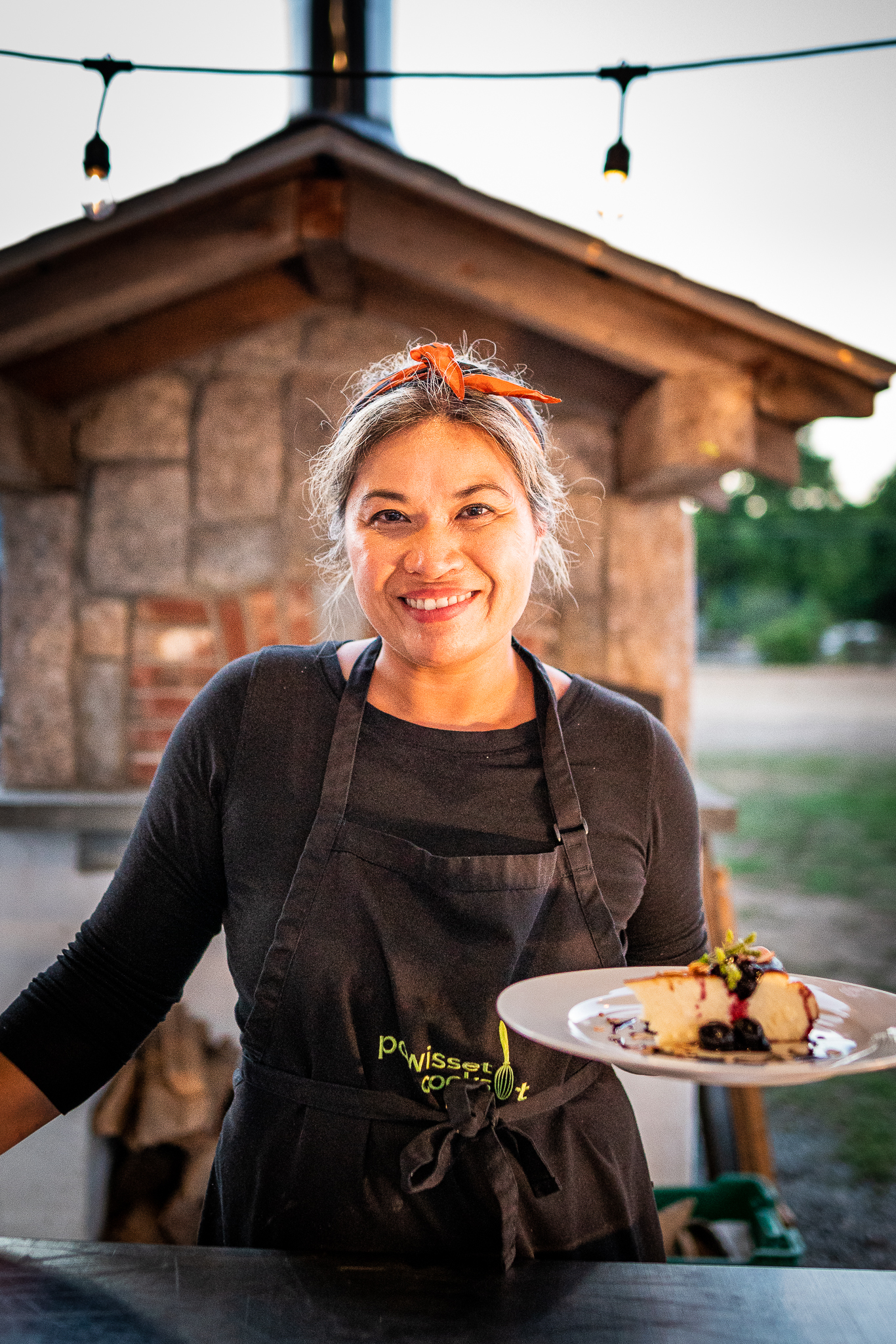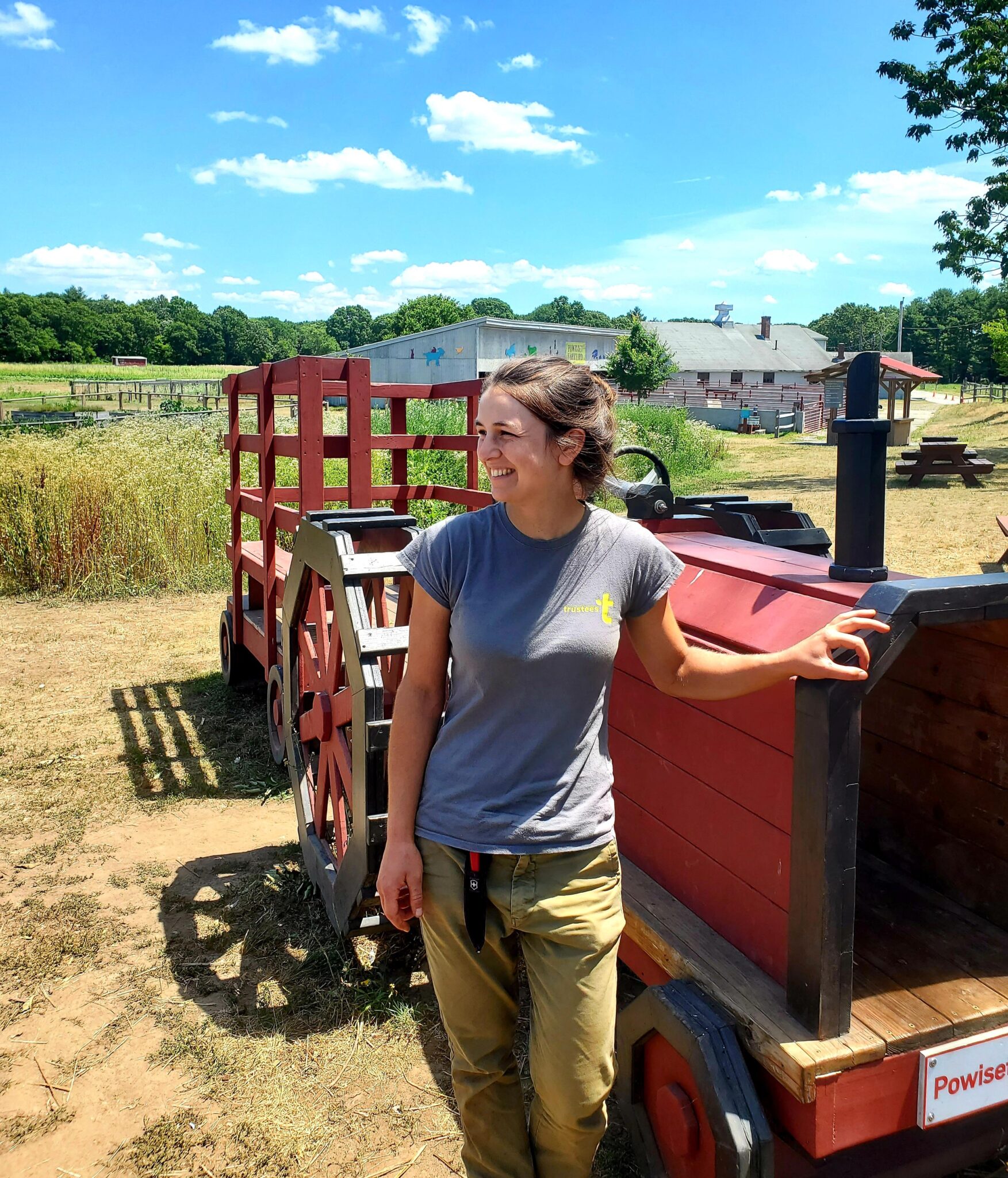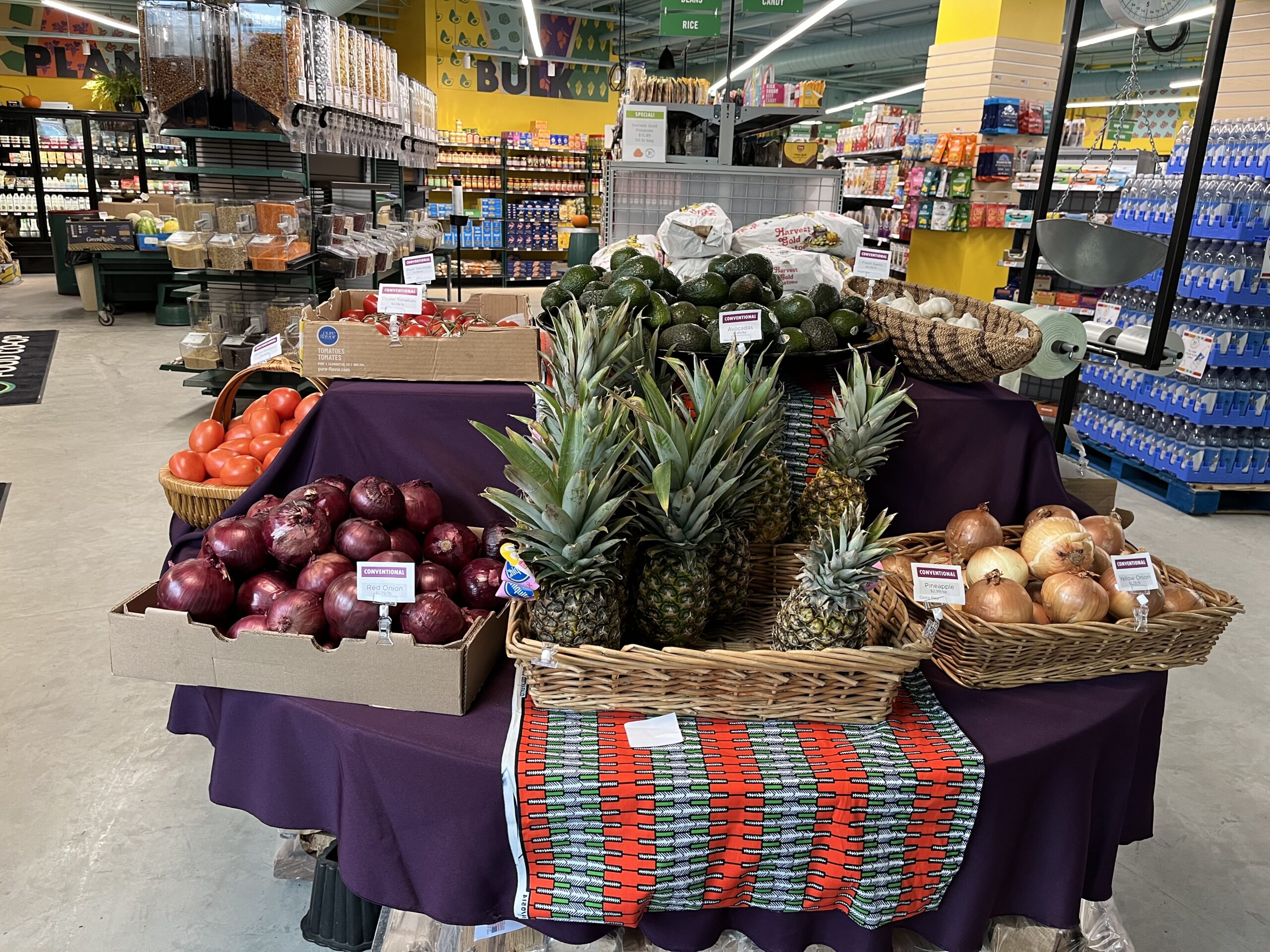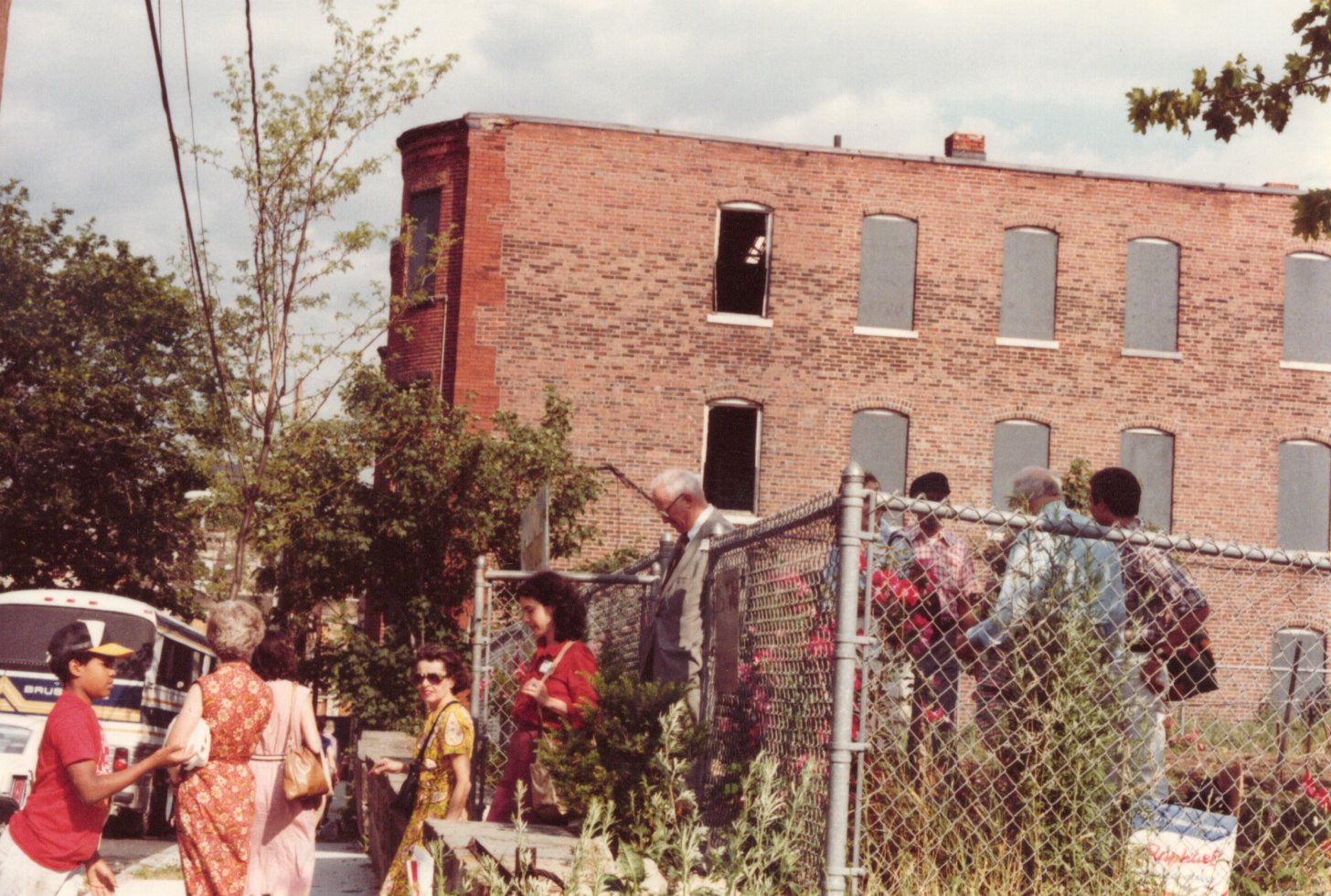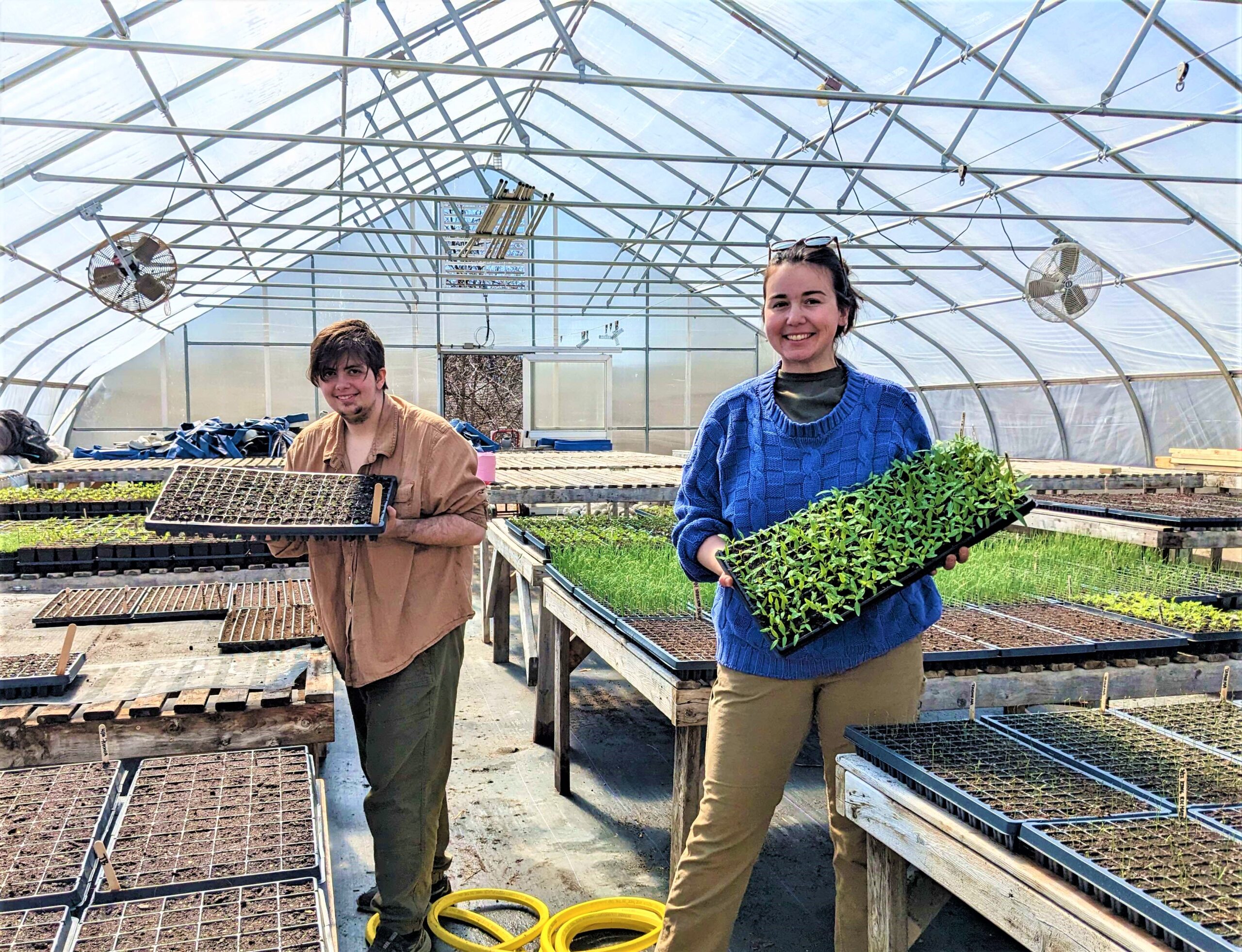
As the warming of spring arrives and temperature rises, day-to-day operations at our working farms ramp up for the start of the growing season. Greenhouses fill up with plants for Community Supported Agriculture (CSA) programs, farm stores or plant sales, and farm crew members arrive to begin the challenging and rewarding work of a production farm.
At Powisset Farm in Dover, peas and fava beans were the first vegetables to be seeded directly into the soil, soon to be followed by carrots. According to Field Crop Manager Tim Laird, that meant preparing the fields for planting, a process that previously included the repetitive use of a tool called a disc harrow. “It’s an implement that you pull behind a tractor. It’s very heavy and kind of moves the soil around, throws it around and works it up so you can start to make the bed to plant in,” he says, adding, “This year, we don’t have to do any of that, we have this new spading machine that makes a bed that you can plant in one pass. It cuts down on the work and also doesn’t disturb the soil so much. So, you’re not disturbing the flora and fauna in the soil, not disturbing the organic matter. It’s a much kinder way to make a bed. It’s much less disruptive.”
Preparing the fields will also occasionally involve using a black plastic material, sometimes with metal on one side, which Laird says has several benefits. “Black plastic is generally used for summer crops like summer squash, tomatoes, peppers, eggplant, cucumbers, that like a lot of heat. You stretch the plastic around the bed, in long rows, and it gets a lot hotter underneath. The plastic will make the soil hotter, hold moisture, keep down the weeds, and tends to nearly double the yields, especially on summer squash and cucumbers. It helps to produce the amount of vegetables we need.”
Powisset’s greenhouses have been filling up with the vegetables that will move to those prepared beds, such as onions, spinach, collards, broccoli, or cabbages. They will go outside of the greenhouse first to get used to the full sun and then will be transplanted into the fields. Laird applauds his team of volunteers who have been helping with much of the work, along with his new farm crew members.
Erin Espinosa, Field Crop Manager at Chestnut Hill Farm in Southborough, also mentions her new field crew when describing the work happening at her farm. “Chestnut Hill Farm welcomed two new crew members to the field crops team, Allison and Shade,” she says. “Farmers have been busy seeding crops for the CSA, Farm Store, and Spring Plant Sale. Last week, our farmers got trained in tractor safety and operation, just in time for field preparation. This abnormally dry spring weather has made it easier to prepare fields for spring crops like sugar snap peas, carrots, broccoli, cabbage, and onions. In addition to getting the first crops in the ground, farmers are setting up deer fencing and irrigation to protect and grow those first seedlings. April marks the first month of our growing season and sets the tone for the season to come.”
At Appleton Farms in Ipswich, April has also been a time to welcome back the returning farm crew “We are lucky to have a number of returning and experienced crew members this season, which means we were able to hit the ground running,” says Andrew Lawson, Field Crop Manager. “Less time spent on training has allowed us to focus on tasks like tuning up tractors and equipment, fixing fences, and cleaning out the barn. In addition, our seasoned crew has been busy in the greenhouse and recently started field planting early crops like beets, kale, broccoli, and onions.”
With the start of farming operations, Lawson and all the farmers are hopeful when it comes to the weather, with memories of last summer’s drought in mind. Lawson notes, “A brief heat wave forced our hand, as we pulled out the irrigation reel to help along some early field crops. Luckily, the hot weather passed, and some mild and drizzly conditions means we hit pause on the irrigation. Other than a couple of hot days, conditions have mostly been mild, and we’re relieved to see more rain in the forecast. That is welcome news, as we launch into planting season with hope and enthusiasm for the season to come.”
Join our farmers this season and share in the risks and rewards of farming, get 100% certified organic local produce, connect with your community, and enjoy a “taste” of farm life by joining one of our Community Supported Agriculture (CSA) programs.
Join Our CSA